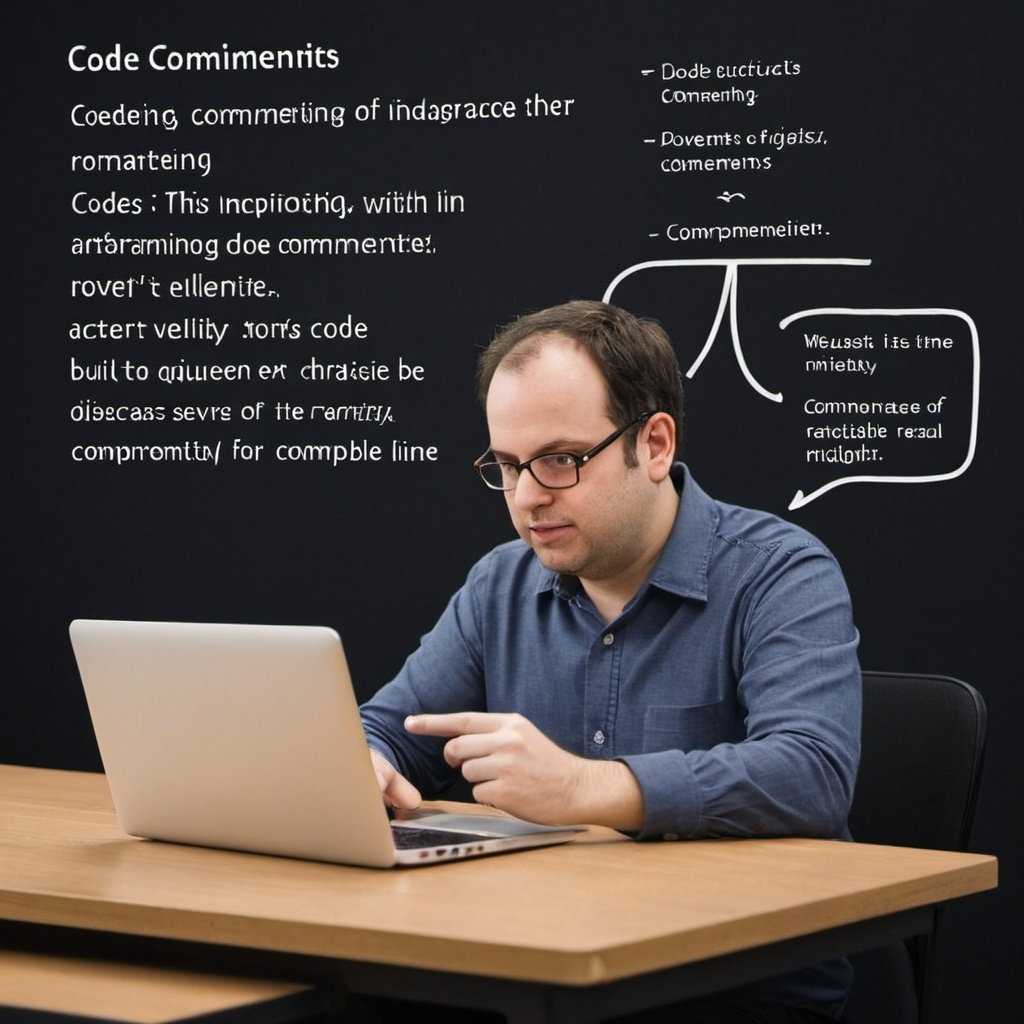Software development is a challenging endeavor, and one of the most significant hurdles developers face is working with poorly commented code. Being given all the ingredients to bake bread but no recipe is akin to working with uncommented code. Code comments serve as a crucial roadmap, aiding in understanding how functions are used or how challenges are overcome by programmers.
An astute observation by Joel Spolsky, co-creator of StackOverflow, highlights that “It’s harder to read code than to write it.” This is particularly evident when faced with uncommented code, where effective commenting can transform an inscrutable jumble of syntax into a comprehensible and maintainable codebase.
When aiming to enhance development team practices, it’s crucial to prioritize understanding the dos and don’ts of code commenting. These best practices ensure that code remains clear and accessible, benefiting overall team productivity and comprehension.
The Do’s of Code Commenting
1. Use Comments as a Communication Tool: Encourage your developers to view comments as a means of communicating their intentions and actions to collaborators. Well-crafted comments serve as a dialogue between programmers, elucidating the rationale behind code decisions.
2. Write with Others in Mind: Emphasize that comments should be written with other developers as the intended audience. The primary purpose of commenting is to facilitate understanding for anyone who might work on the code in the future. This mindset fosters clarity and collaboration.
3. Eliminate Confusion: The overarching goal of code commenting should be to dispel any ambiguity within the codebase. Comments should simplify, not complicate. Encourage developers to strive for clarity and conciseness in their annotations.
4. Provide Links to Original Sources: When code is borrowed or adapted from external sources, it’s crucial to include links to the original material. This practice allows future developers to understand the context and potentially reach out to the original author if necessary.
5. Document Bug Fixes: When resolving issues, developers should add comments explaining the nature of the fix and the reasoning behind it. These annotations provide valuable insights into the code’s evolution and potential pain points.
6. Utilize Code Annotations and Tags: Encourage the use of standardized annotations like @desc, @param, @returns, and @throws. These tags provide a structured way to document code functionality and expected behavior.
7. Comment While Coding: Advocate for real-time commenting as code is written. This practice ensures that the developer’s thought process is captured accurately and prevents the loss of crucial information if a project is interrupted.
The Don’ts of Code Commenting
1. Avoid Over-Commenting: Caution developers against commenting on every line or obvious operations. This practice can lead to verbosity and actually obscure the code’s intent. Encourage discernment in deciding what truly requires explanation.
2. Don’t Substitute Comments for Documentation: Make it clear that code comments and formal documentation serve different purposes. Comments should provide quick insights into specific functions or approaches, not exhaustive explanations of system architecture or user guides.
3. Refrain from Comment Cross-Referencing: Discourage the practice of referring to other comments within comments. This creates a labyrinthine trail for future developers to follow and defeats the purpose of clear, concise annotation.
Implementing Effective Commenting Practices
To foster a culture of effective code commenting, consider the following strategies:
- Conduct regular code reviews that specifically assess the quality and usefulness of comments
- Provide training sessions on best practices for code commenting
- Incorporate comment quality into your team’s definition of “done” for code tasks
- Encourage peer feedback on commenting practices
- Showcase exemplary commenting in team meetings to reinforce good habits
By implementing these practices, you can ensure that your development team produces not just functional code, but code that is easily understood, maintained, and built upon by current and future team members.
The Long-Term Benefits of Good Commenting Practices
Investing time and effort into cultivating strong commenting habits pays dividends in the long run. Some of the benefits include:
- Reduced Onboarding Time: New team members can get up to speed more quickly when working with well-commented code.
- Improved Code Maintenance: Future modifications and bug fixes become less time-consuming when the original intent is clearly documented.
- Enhanced Collaboration: Clear comments facilitate better teamwork and reduce misunderstandings between developers.
- Increased Code Longevity: Well-commented code is more likely to remain useful and maintainable over time, even as team members come and go.
Remember, the goal is not to create a verbose codebase drowning in superfluous annotations but rather to strike a balance where comments provide just enough context to illuminate the code’s purpose and functionality.
Conclusion
Code comments are the unsung heroes of software development, playing a crucial role in making codebases accessible and maintainable. By instilling good commenting habits in your development team early on, you ensure that any developer can pick up where another left off, understanding what was done, why it was done, and how it was implemented.
As your team embraces these best practices, you’ll likely see improvements in code quality, team collaboration, and overall project efficiency. Remember, great code tells a story, and well-crafted comments are the narrator that guides readers through its intricacies.
Encourage your developers to view commenting as an integral part of the coding process, not an afterthought. With time and consistent application of these principles, your team will develop a symbiotic relationship between code and comments, creating a codebase that stands the test of time and welcomes future innovations with open arms.
–

Explore TechTalent: Elevate Your Tech Career
Certify Skills, Connect Globally
TechTalent certifies your technical skills, making them recognized and valuable worldwide.
Boost Your Career Progression
Join our certified talent pool to attract top startups and corporations looking for skilled tech professionals.
Participate in Impactful Hackathons
Engage in hackathons that tackle real-world challenges and enhance your coding expertise.
Access High-Demand Tech Roles
Use TechTalent to connect with lucrative tech positions and unlock new career opportunities.
Visit TechTalent Now!
Explore how TechTalent can certify your skills and advance your tech career!
